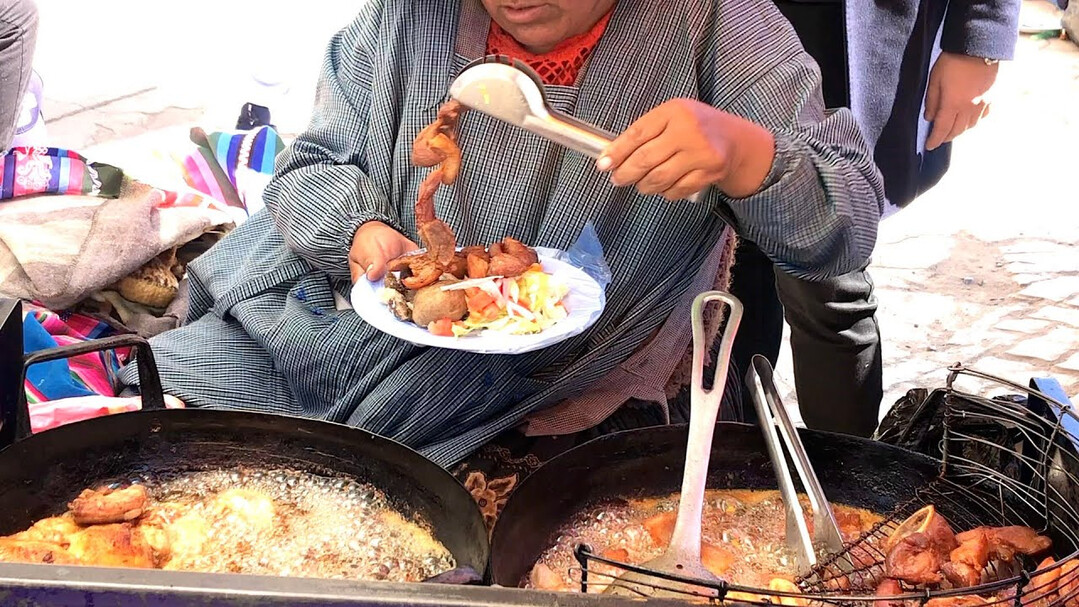
LA PAZ, Bolivia — The culinary landscape of Bolivia is undergoing a fascinating transformation, with chefs like Dennis Llusco of La Rufina restaurant in La Paz leading the charge. Drawing inspiration from the country's vibrant street food culture and rich indigenous traditions, these culinary innovators are elevating humble, everyday dishes to the realm of haute cuisine, garnering international recognition in the process.
La Rufina, a restaurant recently lauded by the prestigious U.K.-based 50 Best Discovery organization as one of the world's finest dining establishments, embodies this movement. For Chef Llusco, a 30-year-old native of the Lake Titicaca region, the recognition is a dream come true. "La Rufina started as a very small kitchen," he explained. "We never dreamed of having two locations or being included in the 50 Best Discovery list."
One of La Rufina's signature dishes beautifully illustrates this fusion of tradition and innovation. Crispy-skinned fish, sourced from the pristine waters of Lake Titicaca, the world's highest navigable lake, is meticulously cooked in a hot copper pan. It's then presented in traditional clay dishes alongside Andean boiled corn and chuño (dehydrated potatoes), offering diners an authentic taste of the Altiplano.
Stepping into La Rufina, which opened its doors in 2021, offers more than just a meal; it's an immersive journey into Bolivian culture. The ambiance allows diners to encounter cholitas, the iconic Indigenous women dressed in their characteristic multilayered Andean skirts and bowler hats, creating a vibrant and authentic atmosphere reminiscent of La Paz's bustling street corners and markets.
The menu itself is a carefully curated selection of local favorites, reimagined with a refined touch. Diners can savor the papa rellena, a baked potato generously stuffed with a flavorful minced meat stew, a beloved staple found throughout downtown La Paz. Another notable dish is Llusco's take on anticucho, a popular street food, particularly in Peru, featuring grilled beef heart fillets served with tender potatoes and a vibrant yellow chili pepper sauce. This inclusion highlights the interconnectedness of Andean culinary traditions.
Chef and food researcher Marko Bonifaz emphasizes the significance of this culinary evolution in Bolivia. He notes that the integration of haute cuisine with street food is no longer solely a novelty for tourists but has become a point of pride and culinary exploration for Bolivians themselves. This movement reflects a growing appreciation for local ingredients and traditional cooking techniques.
For Chef Llusco, this culinary path is deeply personal. Her cooking is profoundly influenced by the lessons learned from her mother and aunt, who themselves were vendors of street food in Bolivia. Their legacy of sharing authentic flavors with the community is now being carried forward onto the fine dining stage.
"These simple dishes reconnect us with our culture," Llusco reflects. "They make me very happy." Her sentiment underscores the powerful role that food plays in preserving cultural identity and fostering a sense of belonging. As Bolivian street food finds its place at the fine dining table, it not only elevates the culinary scene but also celebrates the rich heritage and vibrant spirit of the nation.
[Copyright (c) Global Economic Times. All Rights Reserved.]






























